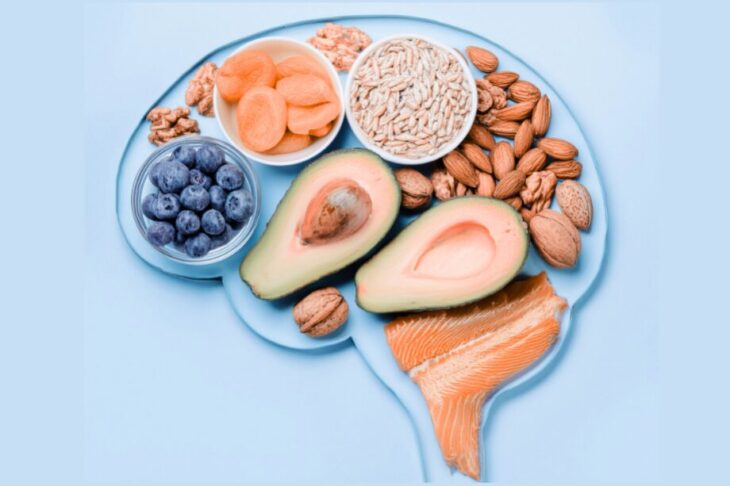Quick Summary
Modern diets often prioritise convenience over nourishment, leading to inflammation, hormone imbalances, and chronic health issues. Processed foods, rushed meals, and nutrient-poor choices disrupt digestion, immunity, and even mental health. At Evolution Medical Care, we combine science-backed evidence with Traditional Chinese Medicine (TCM) ideologies to help patients eat with intention and balance. TCM encourages warm, seasonal, and easy-to-digest meals that align with your body’s rhythms, supported by modern evidence showing benefits like improved digestion, mood, and hormone regulation. By choosing whole, nutrient-dense foods and slowing down to eat mindfully, you can reclaim your health—one nourishing meal at a time.
In today’s fast-paced world, food has become more about convenience than nourishment. Modern dietary trends, characterised by processed foods and rushed meals, often leave us disconnected from the profound impact our choices have on our bodies. With every meal, we make decisions that either nourish us or contribute to a range of health challenges. Food is not just about calories; it’s a vital component of the intricate biochemistry that governs how our bodies function.
At Evolution Medical Care, we believe in empowering individuals to make thoughtful food choices and adopt mindful eating habits. By combining science-backed natural therapies with personalised care, we guide our patients toward achieving optimal health. Traditional Chinese Medicine (TCM) offers valuable principles like food temperature, seasonal alignment, and mindful eating, which modern science increasingly supports. This article explores the intersection of ancient wisdom and modern science, providing actionable advice to help you improve your eating habits and overall well-being.
Modern Eating Habits and Their Consequences

The Rise of Processed Foods
In recent decades, our diets have shifted toward convenience-driven options. Processed and ultra-processed foods dominate supermarket shelves, offering quick and often cheaper solutions to hunger. Unfortunately, these foods are packed with refined sugars, unhealthy fats, preservatives, and artificial flavours—all of which disrupt our body’s natural biochemistry.
This dietary trend contributes to widespread inflammation, a key driver of chronic conditions such as cardiovascular disease, diabetes, and arthritis. Inflammation arises when the immune system overreacts to harmful substances, releasing cytokines, a type of protein that stimulates the immune system, which promotes swelling and pain. Over time, this low-grade inflammatory response can harm tissues and organs, leading to long-term health issues.
Mindless Eating and Its Impact
In our fast-paced world, eating has become a secondary activity. Meals are often consumed in front of screens or on the go, leaving little time to savour and digest food properly. This disconnect interferes with the natural balance of hormones like leptin and ghrelin, which regulate hunger and satiety. Leptin, often called the “satiety hormone,” tells the brain when we’ve had enough, while ghrelin, the “hunger hormone,” signals when it’s time to eat. Disrupted signals from these hormones can lead to overeating, weight gain, and poor digestion.

Additionally, rushed meals can reduce blood flow to the digestive system, impairing nutrient absorption and contributing to gastrointestinal discomfort. This lack of attention to our eating habits not only affects physical health but can also exacerbate stress and anxiety.
Nutrient Deficiency in Modern Diets
Despite an abundance of food, many diets lack essential nutrients due to the depletion of minerals in over-farmed soils and the prevalence of highly refined products. Deficiencies in key nutrients such as magnesium, omega-3 fatty acids, and iron can disrupt critical biochemical processes, including energy production, hormone synthesis, and neurotransmitter function.
When the body lacks these essential nutrients, homeostasis—the state of internal balance—is compromised, increasing susceptibility to fatigue, weakened immunity, and chronic disease.
The Ripple Effect of Poor Eating Habits
The Connection Between Diet and Chronic Diseases
The link between poor nutrition and chronic illnesses is well-established. Diets high in sugar and unhealthy fats elevate insulin levels, leading to insulin resistance—a precursor to type 2 diabetes. Prostaglandins, hormone-like compounds derived from fatty acids, are involved in the body’s inflammatory response. When this system is out of balance, inflammation becomes chronic, accelerating disease progression.
Similarly, excessive intake of processed foods can increase oxidative stress, where the production of reactive oxygen species (ROS) outweighs the body’s antioxidant defences. This imbalance damages cells and contributes to the development of conditions like heart disease.
Gut-Brain Axis and Mental Health
The relationship between the gut and the brain is bidirectional, meaning what happens in one affects the other. Poor dietary choices disrupt gut microbiota—the community of microorganisms in the digestive tract—resulting in inflammation and a reduction in neurotransmitter production. For example, serotonin, a neurotransmitter responsible for mood regulation, is predominantly produced in the gut. A compromised gut can diminish serotonin levels, leading to increased stress, anxiety, and depression.

Hormonal Imbalance and Energy Regulation
Diet plays a significant role in hormone regulation. Chronic stress, exacerbated by poor eating habits, raises cortisol levels, which can disrupt sleep, energy levels, and metabolism. Additionally, diets high in refined carbohydrates can spike insulin levels, causing energy crashes and further hormonal imbalances.
Solution: Eating for Optimal Health
Nutritional Fundamentals
The foundation of a healthy diet is built on consuming whole, unprocessed foods that nourish the body and support its natural functions. These choices provide the essential nutrients needed for energy, cellular repair, and overall well-being. Key principles for a solid nutritional foundation include:
- Prioritising Nutrient-Dense Foods: Incorporate a variety of vegetables, fruits, lean proteins, whole grains, and healthy fats. These foods provide vitamins, minerals, and antioxidants essential for maintaining homeostasis and reducing oxidative stress.
- Avoiding Refined Sugars and Trans Fats: Processed sugars and unhealthy fats contribute to systemic inflammation, disrupting hormonal balance and increasing the risk of chronic diseases.
- Hydrating Mindfully: Drink warm or room-temperature water instead of cold beverages. Warm liquids support digestion by promoting blood flow to the gastrointestinal tract and aiding enzymatic activity.
Eating the TCM Way
Traditional Chinese Medicine (TCM) takes a holistic approach to nutrition, viewing food as medicine that can influence the body’s balance and overall health. TCM emphasises eating in alignment with the body’s natural rhythms, the seasons, and the individual’s specific health needs.

The Role of Food Temperature in TCM:
- Warm Foods for Digestion: In TCM, digestion is often likened to a cooking process in which the “digestive fire” breaks down food. Warm, cooked meals, such as soups, porridges, and steamed vegetables, are easier for the body to process and absorb, preserving digestive energy.
- Avoiding Cold Foods: Cold or raw foods, such as salads, iced drinks, or smoothies, are thought to weaken the digestive system. They can “cool” the stomach, slowing metabolic processes and causing symptoms like bloating, indigestion, and fatigue. Modern science supports this view, showing that cold intake reduces blood flow to the digestive system, impeding efficient enzymatic activity.
Seasonal Eating in TCM
TCM recognises the importance of adapting dietary choices to the seasons to maintain internal harmony:
- Winter: Focus on warming foods like soups, root vegetables, and spices such as ginger and cinnamon. These foods help support the body’s need for warmth during colder months.
- Spring: Transition to lighter meals, including green vegetables, sprouts, and herbs, to align with the body’s natural detoxification processes.
- Summer: Incorporate naturally cooling foods like melons and cucumbers to counteract external heat, but avoid overly cold beverages that can shock the digestive system.
- Autumn: Emphasise moistening foods like pears, nuts, and seeds to prepare the body for the dryness of the season.

Modern Science Meets TCM
The TCM perspective on food temperature and seasonality aligns with scientific findings. For instance:
- Warm foods stimulate the parasympathetic nervous system, promoting relaxation and efficient digestion.
- Seasonal foods provide optimal nutrition for the body’s needs, such as hydrating fruits in summer or energy-dense root vegetables in winter.
- Balanced eating habits regulate hormones like leptin and ghrelin, responsible for hunger and satiety, while supporting metabolic efficiency.
Science-Backed Eating Habits
Combining TCM with evidence-based practices amplifies the benefits of a mindful approach to eating. These habits ensure that the food you consume nourishes both the body and mind.

- Mindful Eating: Slow down and savour your meals. Chewing thoroughly enhances nutrient absorption and allows the digestive system to work efficiently. This approach also prevents overeating by giving your brain time to register fullness.
- Meal Timing: Eating at regular intervals stabilises insulin and cortisol levels, reducing stress on the metabolic system. Breakfast, for example, should include warming and nourishing foods to “kickstart” the digestive system.
- Incorporating Anti-Inflammatory Foods: Foods like fatty fish, turmeric, green tea, and colourful vegetables are rich in antioxidants and omega-3 fatty acids. They help reduce systemic inflammation by modulating cytokine activity and supporting the immune system.

Nourishing Your Body, Empowering Your Health
Your dietary choices are a powerful tool for improving your health and well-being. By embracing mindful eating habits and focusing on whole, nutrient-dense foods, you can support your body’s natural processes, reduce inflammation, and maintain optimal energy levels. Traditional Chinese Medicine (TCM) principles, such as aligning meals with seasonal changes and choosing foods that are easier to digest, offer timeless wisdom that complements modern scientific findings.
At Evolution Medical Care, we’re here to guide and empower you on your journey to better health. Whether through personalised dietary advice, TCM-based recommendations, or holistic treatments, our goal is to help you thrive. By adopting thoughtful eating habits, you can take a proactive step toward preventing illness, improving digestion, and achieving lasting vitality—because health is built one meal at a time.
Would You Like Some Guidance?
If you’ve been considering natural strategies to improve your state of health, there’s always a way and this is what we specialise in. Reach out to us for a consultation. Our team is committed to providing personalised, research-backed care to help you manage your symptoms effectively.

Book an appointment online or give us a call at (02) 4709 6727 – we look forward to discussing how we can assist in your situation and support your journey towards better health.






